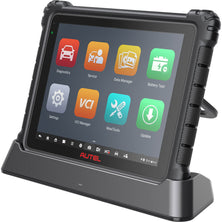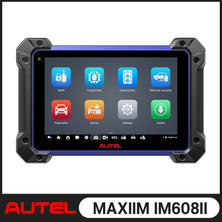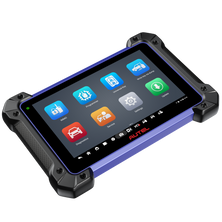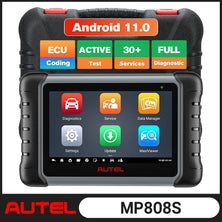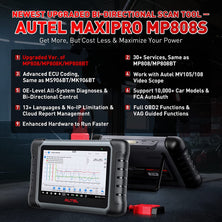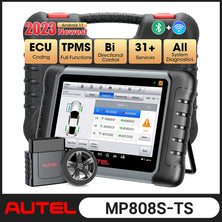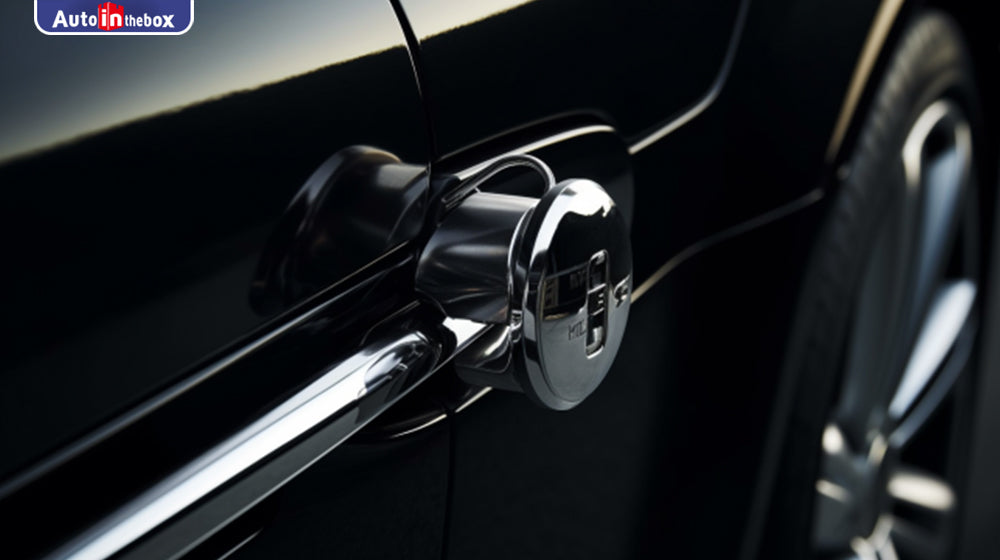
Is car's central locking system not Working?
A car's central locking system is a mechanism that allows the driver to simultaneously lock or unlock all the vehicle doors with a single button or key. Its primary function is to enhance the convenience and security of the vehicle. By enabling the central locking system, the driver can easily lock or unlock all the doors, ensuring that the car is securely closed when parked and providing quick access when entering or exiting the car. This system improves the vehicle's overall safety by preventing unauthorized entry and adds convenience by eliminating the need to lock or unlock each door individually. The central locking system is crucial in safeguarding the vehicle and its occupants, making it an essential feature for modern cars.
Recommended 2023 top car diagnostic tool:Autel IM608II,Launch pro5,Launch IMMO elite,Launch PADVII
There can be several reasons why a car's central locking system may not work:
It is important to note that these are just potential reasons, and a professional diagnosis is recommended to determine the cause of a non-functioning central locking system accurately.
The consequences of a car's central locking system not working can include the following:
It is crucial to promptly address any issues with the central locking system to maintain the security, convenience, and safety of the vehicle and its occupants.
To resolve a car's central locking system not working, here are some potential solutions:
Remember, troubleshooting and repairing the central locking system can involve complex electrical components, so it is essential to exercise caution or seek professional help if you need to become more familiar with automotive electrical systems.
To prevent issues with a car's central locking system and ensure its proper functioning, here are some preventive measures and maintenance tips:
By following these preventive measures and conducting regular maintenance, you can help ensure the longevity and reliable performance of your car's central locking system.
In conclusion, maintaining a properly functioning central locking system in your car is paramount for the driver and passengers. A malfunctioning system can compromise the vehicle's security, increase the risk of break-ins, and pose safety concerns in emergencies. You can ensure the optimal performance of the central locking system by addressing any issues promptly and following preventive measures, such as checking the critical fob, inspecting wiring connections, and regular maintenance. This will enhance the convenience, security, and peace of mind of everyone inside the vehicle. Remember, a well-maintained central locking system is crucial in safeguarding the vehicle and its occupants, making it a vital aspect of car ownership and operation.
Recommended 2023 top car diagnostic tool:Autel IM608II,Launch pro5,Launch IMMO elite,Launch PADVII
There can be several reasons why a car's central locking system may not work:
- Battery issue: A weak or dead battery can cause the central locking system to malfunction. If the battery is low, it may not have enough power to engage the locking mechanism.
- Faulty key fob or remote: If the key fob or remote used to operate the central locking system is damaged or has a weak battery, it may need to send the proper signals to lock or unlock the doors.
- Electrical malfunction: The central locking system relies on electrical components and wiring. Any malfunction or short circuit in the wiring or electronic control module can disrupt the system's operation.
- Broken actuators or solenoids: The actuators or solenoids responsible for physically locking and unlocking the doors may become damaged or worn out over time. This can result in the central locking system not functioning correctly.
- Fuse or relay problem: A blown fuse or faulty relay related to the central locking system can prevent it from working. These components protect the system from electrical overload and need to be checked if the system fails to operate.
It is important to note that these are just potential reasons, and a professional diagnosis is recommended to determine the cause of a non-functioning central locking system accurately.
The consequences of a car's central locking system not working can include the following:
- Compromised security: A malfunctioning central locking system can compromise the vehicle's safety. Without the ability to lock all the doors simultaneously, the car becomes more vulnerable to theft or unauthorized access.
- Increased risk of break-ins: When the central locking system is not working, it may tempt potential thieves or criminals to target the vehicle. The absence of a secure locking mechanism makes it easier for unauthorized individuals to gain access to the car and its contents.
- Safety concerns for occupants: A faulty central locking system can pose safety risks to the vehicle's occupants. Quick and easy access to the car is crucial in an emergency, such as an accident or an attempted theft. A non-functioning central locking system may hinder their ability to exit the vehicle promptly.
- Inconvenience and manual locking: With the convenience of the central locking system, the driver and passengers can manually lock or unlock each door. This can be time-consuming and inconvenient, especially when entering or exiting the vehicle quickly.
- Potential damage to the vehicle: In some cases, attempting to manually lock or unlock doors due to a non-functioning central locking system can lead to injury. For example, using alternative methods like a key in a malfunctioning lock can cause wear and tear or even break the key.
It is crucial to promptly address any issues with the central locking system to maintain the security, convenience, and safety of the vehicle and its occupants.
To resolve a car's central locking system not working, here are some potential solutions:
- Check the key fob or remote: Ensure that the key fob or remote used to operate the central locking system has a functional battery. Replace the battery if necessary and verify if the system starts working.
- Inspect the central locking system fuse: Locate the fuse box and check the fuse related to the central locking system. If the fuse is blown, replace it with a new one of the same rating. Test the system to see if it functions properly.
- Verify the wiring connections: Inspect the connections related to the central locking system, including those near the door hinges and inside the door panels. Look for loose, damaged, or disconnected wires. Reconnect or repair any faulty wiring as needed.
- Test the door actuators or solenoids: Manually test each door actuator or solenoid responsible for locking and unlocking the doors. If a specific actuator is not functioning, it may need to be replaced.
- Seek professional assistance: If the above steps do not resolve the issue, it is advisable to consult an experienced automotive technician or a locksmith with expertise in central locking systems. They can diagnose the problem using specialized tools and equipment and perform necessary repairs or replacements.
Remember, troubleshooting and repairing the central locking system can involve complex electrical components, so it is essential to exercise caution or seek professional help if you need to become more familiar with automotive electrical systems.
To prevent issues with a car's central locking system and ensure its proper functioning, here are some preventive measures and maintenance tips:
- Regularly check the key fob or remote: Inspect the key fob or remote for any signs of damage or wear. Replace the battery as recommended by the manufacturer to maintain its optimal performance.
- Keep the key fob or remote dry: Avoid exposing the key fob or remote to excessive moisture or water, as it can damage the internal components. Please protect it from rain or accidental spills.
- Clean the key fob or remote contacts: Over time, dirt and debris can accumulate on the key fob or remote contacts. Use a cloth or cotton swab dipped in rubbing alcohol to clean the contacts and ensure proper electrical connections gently.
- Regularly lubricate the door locks: Apply a small amount of graphite or silicone-based lubricant to the door locks. This helps prevent the waves from becoming stiff or corroded, ensuring the smooth operation of the central locking system.
- Inspect wiring connections: Periodically inspect the connections related to the central locking system. Look for any signs of damage, corrosion, or loose connections. If any issues are found, have them repaired promptly.
- Avoid excessive force: Be gentle when using the key fob or remote to operate the central locking system. Avoid applying extreme pressure or rough handling, as it can damage the internal components or cause misalignment.
- Seek professional maintenance: Consider scheduling regular maintenance checks with a qualified automotive technician. They can comprehensively inspect the central locking system, identify potential issues, and address them before they become significant problems.
By following these preventive measures and conducting regular maintenance, you can help ensure the longevity and reliable performance of your car's central locking system.
In conclusion, maintaining a properly functioning central locking system in your car is paramount for the driver and passengers. A malfunctioning system can compromise the vehicle's security, increase the risk of break-ins, and pose safety concerns in emergencies. You can ensure the optimal performance of the central locking system by addressing any issues promptly and following preventive measures, such as checking the critical fob, inspecting wiring connections, and regular maintenance. This will enhance the convenience, security, and peace of mind of everyone inside the vehicle. Remember, a well-maintained central locking system is crucial in safeguarding the vehicle and its occupants, making it a vital aspect of car ownership and operation.
Older Post
 Newer Post
Newer Post
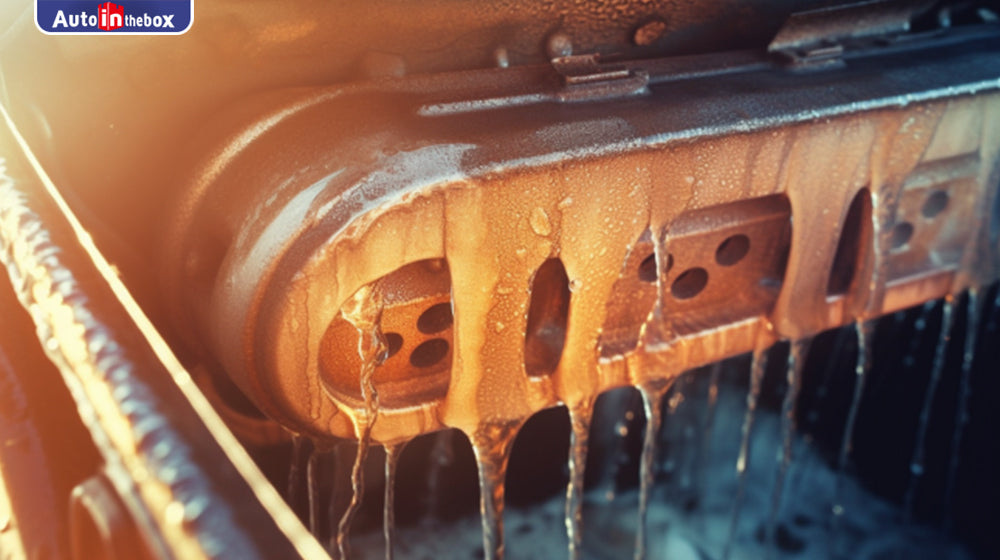
Bubbles or cracks in the vehicle's windows?How to fix?

Radiator Leaks? How to Fix?




